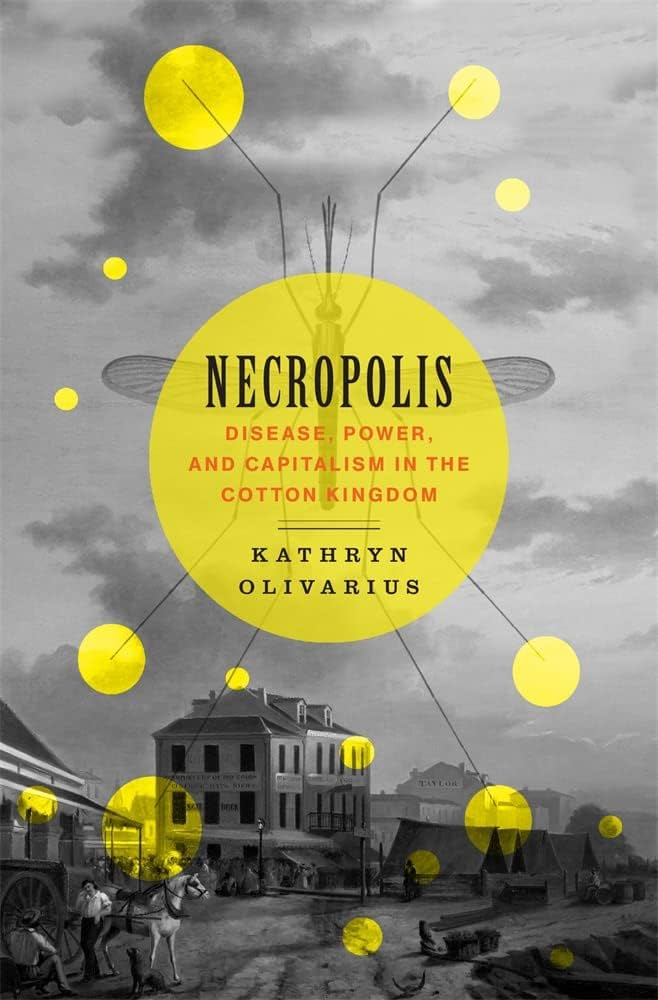MH: Can you talk about the “immunocapital” concept—your term for the system by which yellow fever interacts with this variegated labor market?
KO: Immunocapitalism is a system of class rule in which elites in New Orleans used yellow fever and the destruction that it brought to essentially divide and subjugate the masses, both black and white. So the people who are controlling the commercial and civic sphere—the rich white planters, the merchants, the politicians (who by the way are very often all three of those things at the same time)—came to see disease not necessarily as a curse, but as a kind of blessing. Because disease did a lot of work for them.
In other American cities at the time, where there’s disease, people are trying to ameliorate it, or cure it. That’s not what the New Orleans elite did. Instead they seemed to encourage the propagation of yellow fever, making the most of the mass death to consolidate their power on top of the cotton market. Early on after the Louisiana Purchase, elites noticed: Well, there’s nothing we can do to stop yellow fever. There’s no cure. There’s no inoculation. We don’t know how it spreads. We have no way of telling who’s going to live or die. And quarantines and other public health measures, which might work in New York, aren’t going to work here because we’re in a swamp. The two “solutions” they came up with were the notions of enslaved Black immunity and white acclimation.
In time, the city’s white population became stratified according to who possessed immunity to yellow fever—the so-called acclimated citizens. Acclimated people lived in better places, they had better jobs, they were more readily promoted. They were able to socialize and mingle in superior circles. You could even marry better—many fathers would bar their daughters from even talking to unacclimated men.
MH: Because they were likely to die on you?
KO: Right. And acclimation correlated with wealth because it opened up the doors to better employment, better connections, better lines of credit, and so on. So these labels really matter, professionally and socially.
MH: It sounds like acclimation was, conceptually, sort of analogous to certain kinds of education or skills, like having a college degree or knowing how to code. I tried to imagine how people would relate to that kind of labor market situation.
KO: I use capital deliberately here because people at the time describe their immunity as a form of capital in the way that Pierre Bourdieu describes it. They thought about it as a credential that would give you access to other things, just like a college degree would. It can’t be passed down and it can’t be traded, but you put in time and you risked your life and this is your reward.
